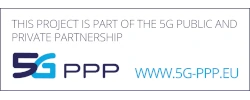2nd International Workshop on Autonomous Network Management in 5G and Beyond Systems (ANMS 2023)
8 or 12 May, 2023, Miami, FL, USA
Committee
General Chair
TPC Co-Chairs

Miguel Camelo
University of Antwerp, IMEC
Belgium

Francesc Wilhelmi
Nokia Bell Labs
Germany

Paul Harvey
University of Glasgow
UK
Technical Program Committee
Antonio Bazco Nogueras, IMDEA Networks, Spain
Chia-Yu Chang, Nokia Bell Labs, Belgium
Costas Michaelides, Universitat Pompeu Fabra, Spain
Danny De Vleeschauwer, Nokia Bell Labs, Belgium
Elia Guerra, Tecnològic de Telecomunicacions de Catalunya, Spain
Esra Aycan Beyazit, Universiteit Antwerpen – IMEC, Belgium
Esteban Municio, i2CAT, Spain
Leon Wong, Rakuten Mobile, Japan
Livia Elena Chatzieleftheriou, IMDEA Networks, Spain
Michele Gucciardo, IMDEA Networks, Spain
Nina Slamnik-Krijestorac, Universiteit Antwerpen – IMEC, Belgium
Ryo Yanagida, Glasgow University, UK
Paolo Dini, Centre Tecnològic de Telecomunicacions de Catalunya, Spain
Call For Papers
Call for Papers
Beyond 5G (B5G) wireless systems are expected 1) to increase data rates significantly, 2) to provide ultra-low latency and enhanced connectivity of a massive number of devices, and 3) to bring improvements in network energy efficiency. Moreover, this new generation of networking systems aims to be fully Autonomous Networks (ANs) with management capabilities such as self-configuration, self-healing, self-optimizing, and self-evolving, aspects that today’s networks do not support as their management is largely manual with some automated assistance.
ANs provide a set of closed-loop systems that manage the resources within them, where each closed control loop can observe its environment and functionality thanks to novel cognitive capabilities, reason about those observations in the current situation, and take actions towards a set of well-defined goals. This process allows ANs to adjust their behaviour depending on the user needs and business goals when the environment changes, all of this with minimal human intervention. To successfully implement and deploy such ANs, significant novel contributions and innovations are required in network management.
Advances in Artificial Intelligence (AI) during the last 5-10 years have provided a new set of algorithms and tools to solve challenging problems in multiple domains by learning complex relationships directly from data. These algorithms are also very promising to empower the new generation of intelligent decision engines that present self-dynamic capabilities to create smart business and network operations in a closed-loop fashion. However, new challenges emerge, such as: deciding when to use traditional management algorithms, AI-based models, or even hybrid approaches; design AI models tailor-made for network management problems; deciding where they must be deployed (fog vs. edge); and how to manage their life cycle (from data harvesting to intelligent decision-making). Moreover, important questions arise regarding the usage of AI for communications, including sustainability (energy consumption and carbon footprint), reliability (ML performance in unseen situations), or responsiveness (real-time vs. non-real-time ML training).
As for the realisation of ANs, blockchain and distributed ledger technologies (DLT) provide a set of key properties, including security, immutability, and traceability, that are critical for the development and deployment of trustworthy ANs. Blockchain technology allows for the interaction of multiple components and stakeholders involved in AN management in a secure and transparent manner, thus replacing traditional trust with cryptographic proof. Furthermore, blockchain turns out to be a suitable platform for promoting economic incentives that boost participation in ANs. The adoption of blockchain, however, while being well established in prominent fields like decentralized finance (DeFi), is in its infancy when it comes to ANs. Therefore, there is plenty of room for innovations related to blockchain-enabled ANs, including the analysis and evaluation of blockchains for ANs (e.g., performance, security), development of blockchain solutions for ANs (e.g., novel mining mechanisms, architectures), or analysis of the economic implications of blockchain in ANs.
This workshop focuses on novel research in algorithms for the management of ANs in B5G systems. More specifically, we encourage original paper submissions, which have not been published or submitted elsewhere, from academia and industry presenting novel research on the most recent advances, frameworks, models, and approaches for management of autonomous networks using enabling techniques like SDN, AI, and blockchain. We are also interested in articles revising the state-of-the-art of this topic, showing recent major advances and discoveries, significant gaps in the research, current standardization status, and new future issues.
Extended versions of the best paper(s) may be considered for fast-tracking to the Journal of Network and Systems Management (to be confirmed, https://www.springer.com/journal/10922, IF 2.026). The decision will depend on the quality and scope of the paper(s) and its (their) potential to spark lively discussion(s) at the workshop. The final decision will be made by the co-chairs after the workshop.
Topics of interest include, but are not limited to:
- Network related:
- Decentralized management of multi-domain ANs
- End-to-end lifecycle of ANs
- Network resource and service automation and orchestration
- Automated network operation and maintenance
- Intelligent service provisioning and assurance
- Wireless network coverage optimization and assurance
- Wireless network energy saving
- Intelligent slice lifecycle management
- Metadata-driven policies to recognize and incorporate new knowledge in AN
- Efficient resource allocation and scheduling (e.g., spectrum, storage, computing, processing)
- Network state prediction and forecasting for AN
- Network monitoring systems (traffic recognition, anomaly detection, etc.) for AN
- AN management in resource-constrained environments
- Network management in different autonomous domains (radio access, edge, transport, cloud/core).
- End-to-end management of ANs
- Security provision in ANs
- Frameworks, algorithms, techniques, enablers, and tools to build and support ANs
- Economic inspired approaches towards network resource allocation and optimisation
- Architectures and frameworks to integrate AI in AN management
- Generation and use of knowledge-graphs for network use cases
- Taxonomies of explainability of AI decisions for network use cases
- Energy efficient approaches to training and deployment of AI-based network control
- Adaptation and customization of AI to run on constrained devices (e.g. edge) for network control
- Lightweight communication protocols for AI-embedded network management
- Federated learning in ANs
- Green AI for ANs
- AI-enabled network simulation tools, testbeds, or hardware implementations.
- Blockchain and distributed ledger technology for AN management
- Blockchain security in ANs
- Self-sustainable ANs
- Energy harvesting in ANs
- Security in ANs: survey, attacks, and techniques
Paper Submission
Paper submissions must present original, unpublished research or experiences. Only original papers that have not been published or submitted for publication elsewhere can be submitted. Each submission must be written in English, accompanied by a 75 to 200 words abstract that clearly outlines the scope and contributions of the paper. There is a length limitation of 6 pages (including title, abstract, all figures, tables, and references) for regular papers, and 4 pages for short papers describing work in progress. Submissions must be in IEEE 2-column style. Self-plagiarized papers will be rejected without further review. Authors should submit their papers via JEMS:
https://jems3.sbc.org.br/noms_anms2023
Proceedings
Papers accepted for ANMS 2023 will be included in the conference proceedings, IEEE Xplore, IFIP database and EI Index. IFIP and IEEE reserve the right to remove any paper from the IFIP database and IEEE Xplore if the paper is not presented at the workshop. Extended versions of the best paper(s) may be considered for fast-tracking to the Journal of Network and Systems Management (to be confirmed, https://www.springer.com/journal/10922, IF 2.026). The decision will depend on the quality and scope of the paper(s) and its (their) potential to spark lively discussion(s) at the workshop. The final decision will be made by the co-chairs after the workshop.
IMPORTANT DATES:
Paper Submission Deadline: January 31, 2023
Notification of Acceptance: March 1st, 2023
Camera-ready submission: March 10, 2023


